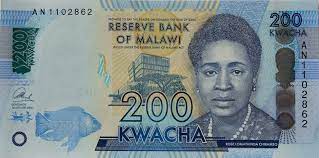Rose Lomathinda Chibambo was a prominent politician in the British protectorate of Nyasaland in the years leading up to independence as the state of Malawi in 1964 and immediately thereafter. Chibambo organized Malawian women in their political struggle against the British as a political force to be reckoned with alongside their men in the fight for independence.
Chibambo, whose maiden name was Ziba, was born on September 8, 1928, in Kafukule, Mzimba district, into a Tumbuka family when Nyasaland was still a protectorate under British colonial rule. In 1947, she married Edwin Chibambo, a former teacher and later civil servant. In 1948, her husband was transferred to the Zomba Public Works Department. She completed secondary school at Zomba Night School in 1948 while pregnant with her first child. She had another child in 1951 and four more over the years, with the youngest born in 1961.
In 1952, Chibambo began organizing women in Zomba, then the capital of Malawi, to protest the colonial government. In 1953, just before the imposition of the hated federation that placed Malawi, Zambia, and Zimbabwe under white settler rule, she interrupted a meeting between chiefs and representatives of the federation to call for autonomy for Malawi. A few years later, Chibambo headed what would become the powerful Women’s League, which would be most influential after Malawian independence. In January 1959, the Malawi anti-colonial activists convened a secret conference (now called the Bush Meeting) with Chibambo, the only woman to attend.
After the meeting, panic broke out in the white settler community as rumors spread that there would be an uprising in which all whites would be killed. British Governor Robert Armitage declared a state of emergency on March 3, 1959, as armored vehicles from Rhodesia entered the country. Thousands of arrests followed. Rose Chibambo was spared because she was pregnant. Nevertheless, she continues to fight, visiting political prisoners and making plans for the continuation of the independence campaign.
On March 23, 1959, Chibambo was arrested two days after giving birth to a baby girl and taken to Zomba Prison. Fellow anti-colonial activists, including Hastings Kamuzu Banda, a future president of independent Malawi, were also arrested. Rose and Edwin Chibambo faced continued harassment by British authorities and were forced to flee to Zambia.
Despite British attempts to stop the anti-colonial movement, Malawi gained independence in 1964. As a result, Rose Chibambo returned to her country, where she was named the first minister in the new cabinet. She soon clashed with President Hastings Banda and was forced into exile for thirty years, returning only in 1994 after Banda was deposed and democracy was restored.
Upon returning to Malawi, Rose Chibambo became a businesswoman in Mzuzu and became involved in politics and the church. She was a member of Church Action Relief Development, which helps HIV/AIDS orphans, the Christian Service Committee, the Malawi Council of Churches, and the Interdenominational Support Group for Prisoners.
In 2009, President Bingu wa Mutharika honored Rose Chibambo by naming a street in Mzuzu City after her. She has also been featured on Malawi’s 200-kwacha banknote since January 1, 2012. Rose Chibambo died at Mwaiwathu Private Hospital in Blantyre on January 12, 2016, at the age of 88.

